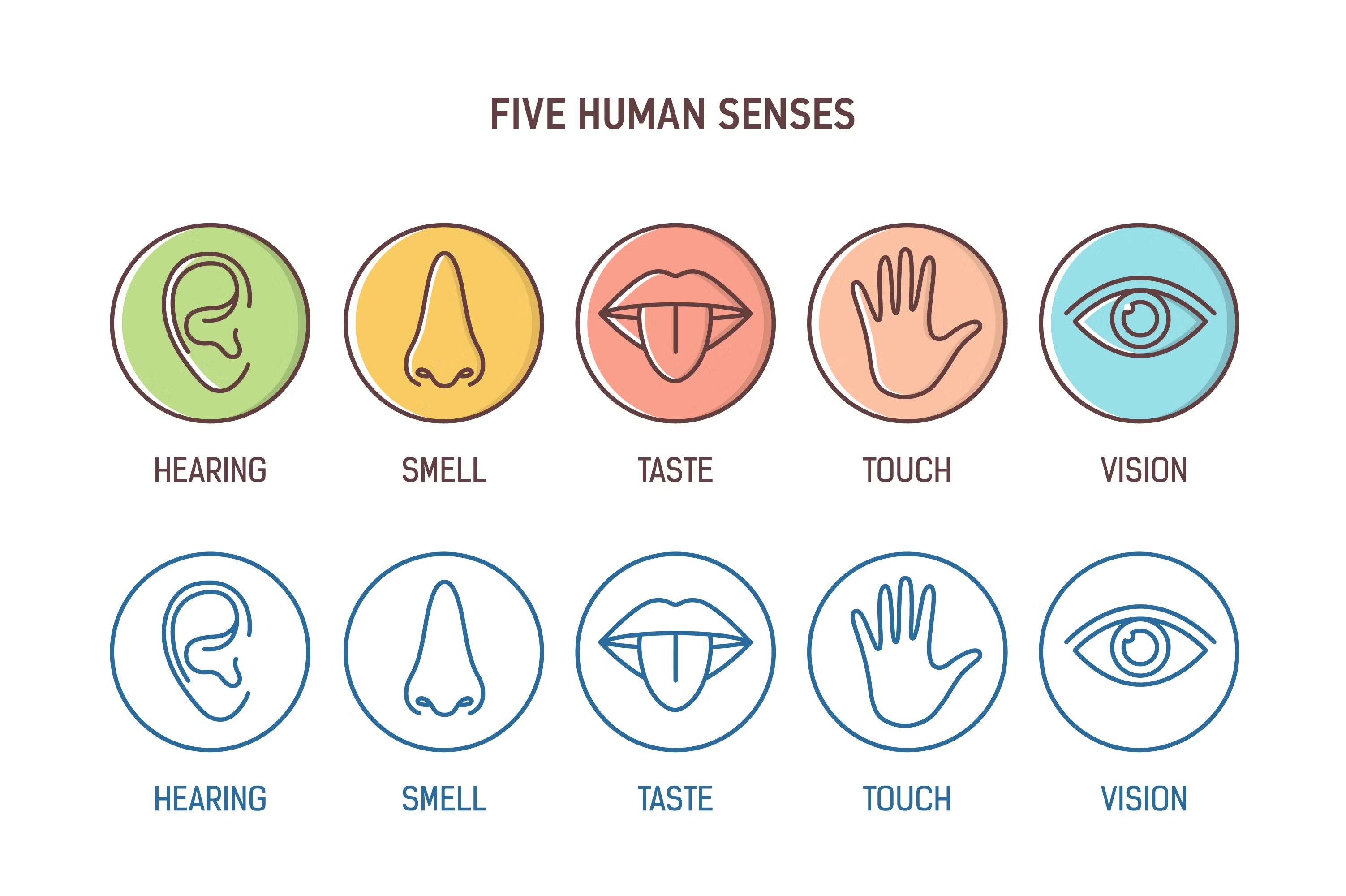
Human beings have five senses, which are sight, hearing, taste, smell, and touch. These senses help us to perceive the world around us and interact with it. However, there are other senses that are not as well-known, but are just as important in our daily lives. In this article, we will explore the list of all human senses.
Vision

Vision is the sense that allows us to see the world around us. Our eyes have the ability to detect light and color, and our brain processes this information to create the images that we see. Without vision, we would not be able to appreciate the beauty of nature, read a book, or watch a movie.
Hearing

Hearing is the sense that allows us to perceive sound. Our ears can detect vibrations in the air and convert them into electrical signals that our brain interprets as sound. Without hearing, we would not be able to enjoy music, converse with others, or hear the sound of nature.
Taste

Taste is the sense that allows us to perceive different flavors. Our taste buds can detect sweet, sour, salty, bitter, and umami flavors. Without taste, we would not be able to enjoy the variety of foods and beverages that are available to us.
Smell
Smell is the sense that allows us to perceive different odors. Our nose can detect a wide range of scents, from pleasant aromas to unpleasant odors. Without smell, we would not be able to enjoy the fragrance of flowers, taste our food, or detect danger.
Touch

Touch is the sense that allows us to perceive pressure, temperature, and texture. Our skin has receptors that can detect different sensations, such as heat, cold, pain, and pressure. Without touch, we would not be able to feel the warmth of the sun, the softness of a pet's fur, or the texture of different fabrics.
Balance

Balance is the sense that allows us to maintain our posture and stability. Our inner ear contains sensory organs that can detect changes in motion and gravity. Without balance, we would not be able to stand, walk, or run.
Proprioception

Proprioception is the sense that allows us to perceive the position and movement of our body parts. Our muscles, joints, and tendons send signals to our brain about the position of our limbs and the amount of force that is being exerted. Without proprioception, we would not be able to perform precise movements, such as writing or playing a musical instrument.
Interoception
Interoception is the sense that allows us to perceive the internal state of our body, such as hunger, thirst, and fatigue. Our brain receives signals from our organs and tissues, which help us regulate our bodily functions. Without interoception, we would not be able to maintain our health and well-being.
Time Perception
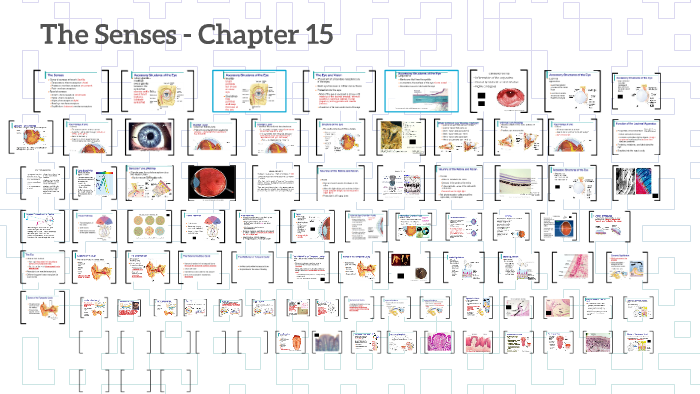
Time perception is the sense that allows us to perceive the passage of time. Our brain processes information about the duration and timing of events, which helps us plan our activities and make decisions. Without time perception, we would not be able to manage our time effectively.
Spatial Awareness
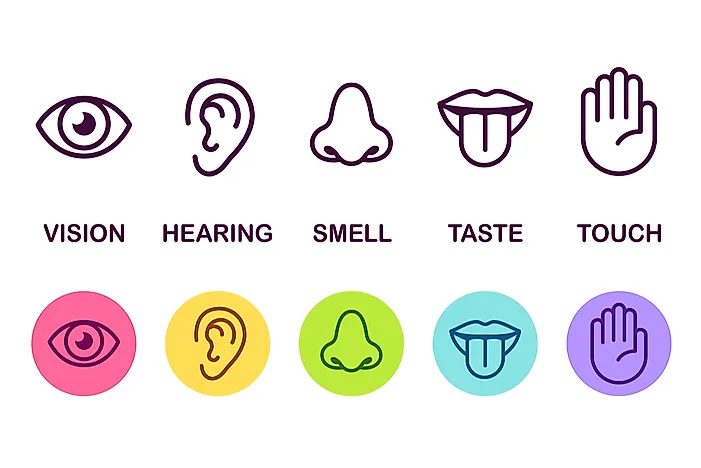
Spatial awareness is the sense that allows us to perceive the position of objects in our environment. Our brain processes information about the distance and direction of objects, which helps us navigate our surroundings. Without spatial awareness, we would not be able to find our way around or avoid obstacles.
Thermoception
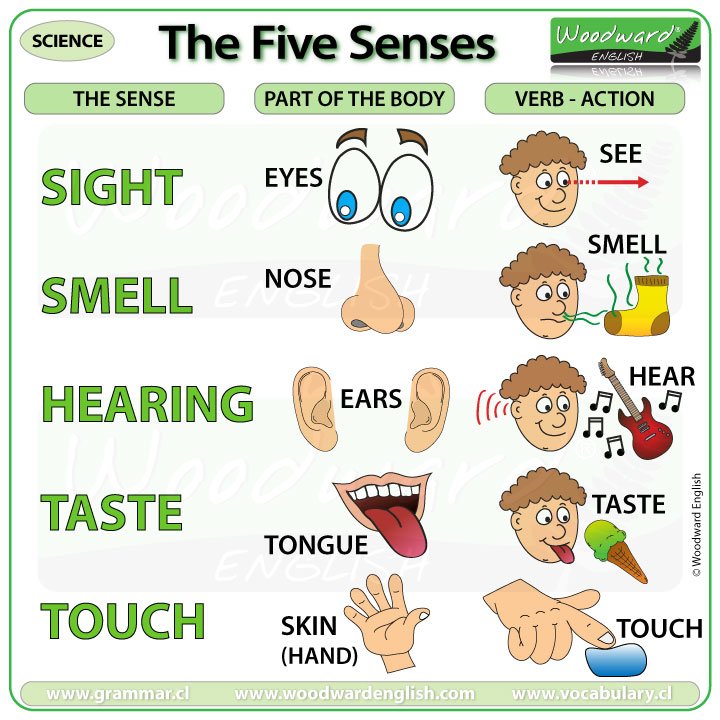
Thermoception is the sense that allows us to perceive temperature. Our skin has receptors that can detect changes in temperature, which help us regulate our body heat and avoid injury. Without thermoception, we would not be able to tell if something is too hot or too cold.
Chronoception
/brain_senses-56ccf48f5f9b5879cc5ba0e6.jpg)
Chronoception is the sense that allows us to perceive the duration of time intervals. Our brain processes information about the duration of events, which helps us coordinate our actions and synchronize with others. Without chronoception, we would not be able to maintain a sense of rhythm or timing in our activities.
Equilibrioception
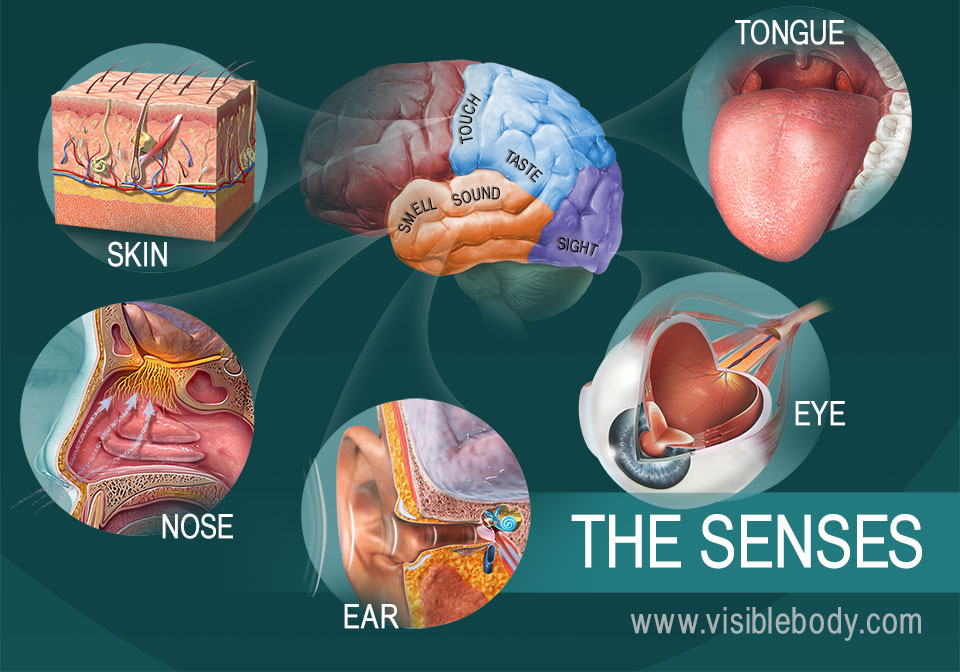
Equilibrioception is the sense that allows us to perceive our body orientation and balance. Our inner ear contains sensory organs that can detect changes in motion and gravity, which help us maintain our posture and stability. Without equilibrioception, we would not be able to stand, walk, or perform other physical activities.
Nociception
Nociception is the sense that allows us to perceive pain. Our skin, muscles, and organs have receptors that can detect tissue damage, which send signals to our brain to produce the sensation of pain. Without nociception, we would not be able to protect ourselves from injury or infection.
Stretch Receptors

Stretch receptors are the sense that allows us to perceive the stretching of our muscles and tendons. These receptors send signals to our brain about the length and tension of our muscles, which help us coordinate our movements and maintain our posture. Without stretch receptors, we would not be able to perform precise movements or maintain our balance.
Chemoreception

Chemoreception is the sense that allows us to perceive chemicals in our environment, such as pheromones, toxins, and flavors. Our nose and tongue have receptors that can detect different chemicals, which send signals to our brain to produce the sensation of smell or taste. Without chemoreception, we would not be able to detect danger, find food, or communicate with others.
Magnetoreception
Magnetoreception is the sense that allows us to perceive the Earth's magnetic field. Some animals, such as birds and fish, have specialized cells that can detect changes in the magnetic field, which help them navigate during migration or find food. Humans do not have this sense, but research has shown that some people may have a weak ability to detect magnetic fields.
Meta Description:
Discover the list of all human senses and their importance in our daily lives. This article explores the different senses that allow us to perceive the world around us, from vision and hearing to proprioception and nociception.
Meta Keywords:
human senses, vision, hearing, taste, smell, touch, balance, proprioception, interoception, time perception, spatial awareness, thermoception, chronoception, equilibrioception, nociception, stretch receptors, chemoreception, magnetoreception